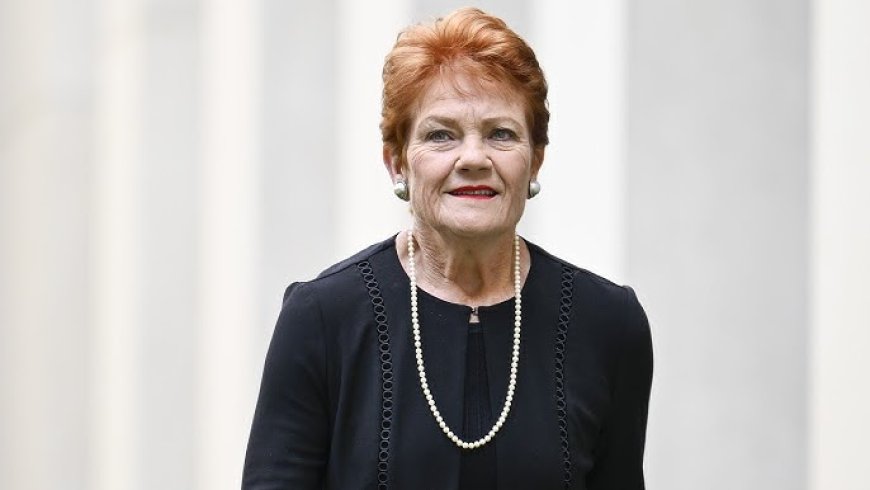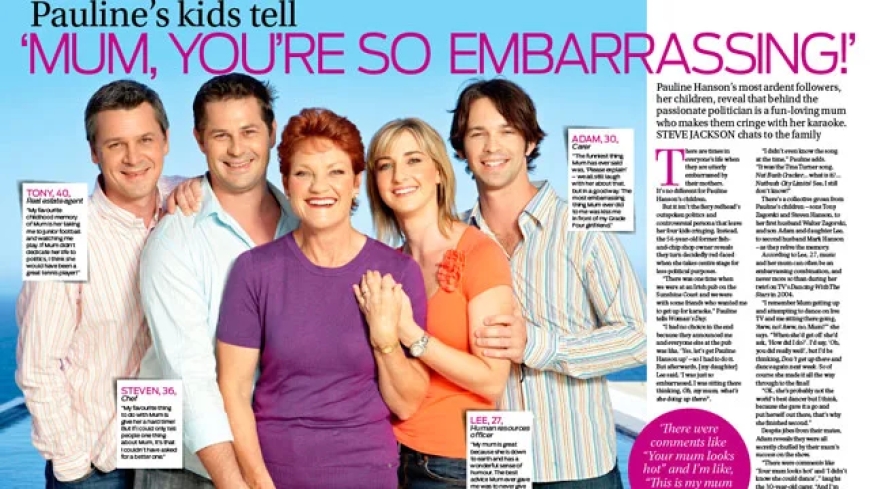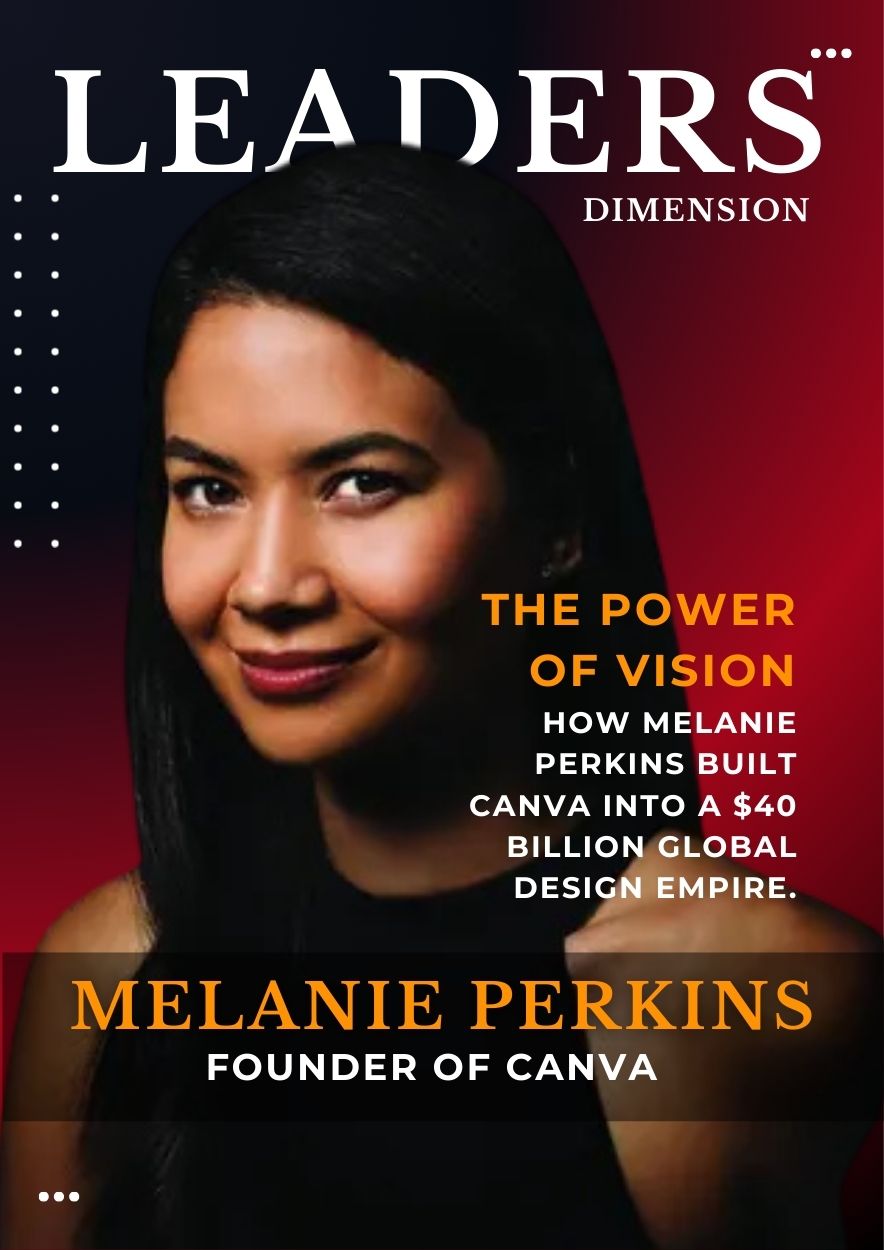Pauline Hanson Net Worth, Salary and Family Background
Pauline Lee Hanson is a prominent Australian politician known for her leadership of the right-wing populist political party.Hanson's political career experienced ups and downs, with her party struggling to maintain consistent support.

Hanson first entered the Australian political scene when she ran as an independent candidate and was elected to the House of Representatives in 1996, representing the Queensland seat of Oxley. Her time in office was marked by controversial views, especially on immigration and Australia's multiculturalism, which earned her both strong support and criticism.
Quick Facts about Pauline Hanson
| Name | Pauline Hanson |
|---|---|
| Full Name | Pauline Lee Hanson |
| Born | May 27, 1954, Brisbane, Queensland, Australia |
| Political Party | One Nation (Founder and Leader) |
| Current Position | Australian Senator for Queensland (since 2016) |
| First Elected | House of Representatives, 1996 (Oxley) |
| Party Founded | One Nation, 1997 |
| Notable Views | Right-wing populism, anti-immigration, nationalism, climate change skepticism |
| Career Highlights | Elected to the House of Representatives (1996), founded One Nation, won Senate seat in 2016 |
| Controversial Issues | Immigration, multiculturalism, climate change policies, race and national identity |
| Support Base | Regional and working-class Australians |
| Opposition | Criticized for divisive views, accused of racism |

Pauline Hanson Family and Early Life
Pauline Hanson was born on May 27, 1954, in Woolloongabba, a suburb of Brisbane, Queensland, Australia. She is the fifth of seven children born to John Alfred "Jack" Seccombe and Hannorah Alousius Mary "Norah" Seccombe (née Webster).
Her parents owned and operated a fish and chip shop in Ipswich, Queensland, where Hanson and her siblings worked from a young age, assisting with meal preparation, taking orders, and managing administrative tasks like bookkeeping and sales ledgers.
Hanson's upbringing in a working-class family and her early involvement in the family business instilled in her a strong work ethic and a deep understanding of small business operations. These experiences later influenced her political perspectives, particularly her advocacy for working-class Australians and small business owners.
Pauline Hanson Husband and Children
Pauline Hanson has had two marriages and is a mother to four children. Her first marriage was to Walter Zagorski in 1971, a Polish refugee who had migrated to Australia with his mother in the early 1950s. Together, they had two sons—Anthony, born in 1972, and Steven, born in 1975.
However, the marriage ended in divorce in 1977. In 1980, she married Mark Hanson, a tradesman from the Gold Coast. Mark already had a daughter named Amanda from a previous marriage, and with Pauline, he had two children: Adam, born in 1981, and Lee, born in 1984. Their marriage lasted for seven years before they divorced in 1987.
Since 2011, Pauline Hanson has been in a relationship with Tony Nyquist, a property developer and real estate agent. The two began dating during her campaign for the New South Wales Legislative Council.
Her four children—Anthony, Steven, Adam, and Lee—have generally stayed out of the political spotlight, though her daughter Lee Hanson has begun pursuing a political path of her own.
Professional Career
Pauline Hanson’s professional career reflects a journey from humble beginnings to becoming one of Australia’s most controversial and enduring political figures. Before politics, she held various working-class jobs—she left school at 15 and began as a waitress and barmaid, later working as a bookkeeper and office assistant.
After marrying Mark Hanson, she helped manage their plumbing business, gaining first-hand experience with the challenges faced by small business owners. In the early 1990s, she became widely known in Ipswich, Queensland, where she operated a successful fish and chip shop. Her strong opinions and candid manner began attracting media attention, particularly on issues like welfare abuse and immigration.
Hanson’s political career formally began in 1994 when she was elected to the Ipswich City Council. In 1996, she was selected as a Liberal Party candidate for the federal seat of Oxley but was disendorsed shortly before the election due to her controversial remarks on Indigenous welfare.
Despite this, she won the seat as an independent. Her maiden speech in parliament, in which she warned that Australia was in danger of being “swamped by Asians,” sparked national outrage and cemented her as a polarizing figure.
In 1997, Hanson co-founded the One Nation party alongside David Oldfield and David Ettridge. The party rapidly gained support, particularly among voters disillusioned with the major parties. One Nation won 11 seats in the Queensland state election in 1998, marking its political peak. However, internal conflicts and legal troubles—including Hanson’s brief imprisonment in 2003 for electoral fraud (later overturned)—led to a decline in support.
Despite setbacks, Hanson remained politically active, running unsuccessfully for several offices over the years. Her political comeback came in 2016 when she was elected to the Australian Senate representing Queensland.
Since then, she has served as the leader of One Nation, advocating for strict immigration controls, protection of Australian jobs, opposition to foreign ownership, and criticism of political correctness. While frequently criticized for her views, Hanson has maintained a loyal voter base and a significant influence on Australia’s political conversation, especially among conservative and rural constituencies.

